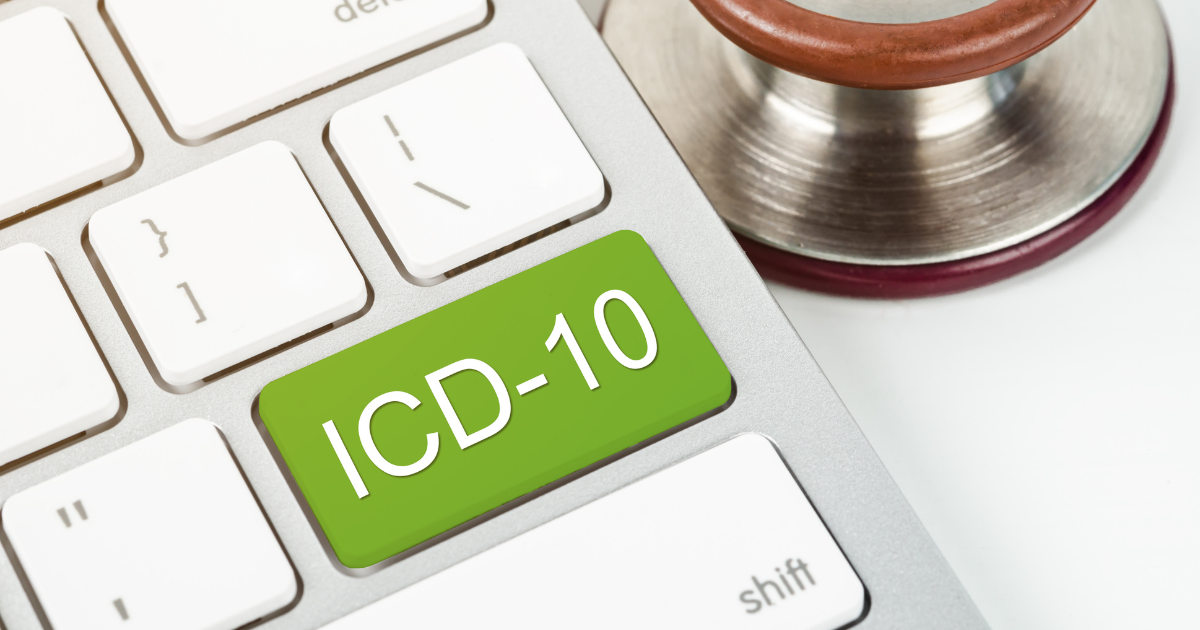
Mastering Dental Billing: 5 Key Strategies for Success
April 5, 2024
Maximizing Revenue and Efficiency: The Benefits of Behavioral Health Billing with Optimal Billing Solutions
April 5, 2024In the world of medical billing, accuracy is key. And when it comes to using ICD-10 codes, precision is paramount. From ensuring proper reimbursement to facilitating better patient care, accurate coding plays a crucial role in the healthcare industry. In this blog post, we'll delve into why precise ICD-10 coding is so important and how it can make a significant difference in your medical billing practices.
Introduction to ICD-10 Coding and its Significance in Medical Billing
In the world of medical billing, accurate coding is crucial for ensuring efficient reimbursement and appropriate payment for medical services. With the transition from ICD-9 to ICD-10 coding in 2015, the healthcare industry has seen significant changes in the way diagnoses and procedures are documented and coded. In this blog post, we will explore the basics of ICD-10 coding and its significance in medical billing.
What is ICD-10 Coding?
ICD-10 stands for International Classification of Diseases, Tenth Revision. It is a system used by healthcare providers to classify diseases, injuries, and other health conditions. The codes within this system provide a standardized method for documenting patient diagnoses and procedures. The World Health Organization (WHO) developed the original version of ICD in 1893, with subsequent revisions being made over the years.
The Importance of Accurate Coding
Accurate coding plays a vital role in medical billing as it directly impacts healthcare reimbursement. Health insurance companies use these codes to determine coverage eligibility and reimbursement amounts for services rendered by healthcare providers. Incorrect or incomplete coding may result in denied claims or delayed payments, which can negatively affect a provider's revenue stream.
Additionally, accurate coding ensures that patients' medical records are complete and comprehensive. This information not only helps providers make informed decisions about their patients' treatment plans but also contributes to improving overall patient care.
Significance of ICD-10 Coding
The transition from ICD-9 to ICD-10 was necessary due to advances in medicine and technology that required a more detailed classification system. While ICD-9 had approximately 13,000 diagnosis codes, ICD-10 has nearly 68,000 codes for diagnoses alone. This expanded code set allows for greater specificity and accuracy when documenting patient conditions.
ICD-10 also includes more detailed procedure codes that capture the complexity of modern medical procedures, making it easier for healthcare providers to accurately report services rendered. This level of detail allows for better tracking and analysis of patient outcomes and medical trends.
Moreover, ICD-10 coding is essential in supporting the transition to value-based care models. As healthcare shifts towards a system that rewards quality over quantity, accurate and comprehensive data is vital for measuring and improving patient outcomes.
Understanding ICD-10 coding and ensuring its accuracy is crucial in medical billing. It not only affects reimbursement but also plays a significant role in patient care and supports the transition to value-based care. In our next blog post, we will delve deeper into the structure of ICD-10 codes and provide tips on how to accurately code diagnoses and procedures. Stay tuned!
How does accurate ICD-10 Coding affect Medical Billing?
ICD-10 coding is an essential component of the medical billing process. It stands for International Classification of Diseases, 10th Revision, and it is a standardized system used by healthcare providers to accurately document and report medical diagnoses and procedures.
The accuracy of ICD-10 coding plays a significant role in the overall success of medical billing. In this section, we will explore how precise ICD-10 coding affects medical billing in various ways.
- Correct Reimbursement: Accurate ICD-10 coding ensures that healthcare providers are reimbursed correctly for the services they provide. Insurance companies use these codes to determine the appropriate reimbursement amount for each procedure or diagnosis. If the codes are incorrect or incomplete, it can result in delayed payments or even denied claims, ultimately affecting the provider's revenue.
- Cost Savings: When ICD-10 coding is done correctly, it can save time and money for both healthcare providers and insurance companies. Accurate coding reduces the likelihood of claim denials or rejections due to errors, which can be costly to rectify. Moreover, insurance companies may conduct audits on claims to ensure proper usage of codes, which can be time-consuming and expensive if errors are found.
- Compliance with Regulations: The Centers for Medicare & Medicaid Services (CMS) requires all healthcare providers to comply with ICD-10 coding guidelines when submitting claims for reimbursement. Failure to do so can result in penalties or fines from CMS, leading to financial losses for providers.
- Improved Patient Care: Properly coded medical records allow healthcare providers to track patient outcomes accurately and identify potential areas for improvement in care delivery processes. With accurate documentation and reporting through ICD-10 codes, patients receive more comprehensive treatment plans that meet their specific needs.
- Data Analysis: ICD-10 codes also play a crucial role in data analysis by providing valuable insights into disease patterns, treatment effectiveness, and population health trends. Accurate coding allows for more comprehensive and reliable data collection, which can help healthcare providers make informed decisions to improve patient care and outcomes.
Accurate ICD-10 coding is vital for successful medical billing. It ensures correct reimbursement, cost savings, compliance with regulations, improved patient care, and valuable data analysis. Healthcare providers must prioritize the accuracy of ICD-10 coding to optimize their revenue cycle management and provide quality care to their patients.
Common Mistakes and Errors in ICD-10 Coding
ICD-10 coding is an essential part of medical billing and plays a crucial role in ensuring accurate reimbursement for healthcare services. However, as with any complex system, there are several common mistakes and errors that can occur during the coding process. These errors not only affect the financial aspect but also have the potential to compromise patient care and impact healthcare organizations' overall efficiency. In this section, we will discuss some of the most common mistakes and errors in ICD-10 coding.
- Lack of Specificity: One of the most frequent mistakes in ICD-10 coding is using nonspecific codes instead of more specific ones. This often happens when coders are not familiar with the code set or when they do not have enough clinical documentation to support a more precise diagnosis code. Using nonspecific codes can lead to claim denials or undercoding, resulting in reduced reimbursement for services provided.
- Incorrect Code Selection: Another mistake commonly made by coders is selecting incorrect codes due to lack of knowledge or experience. With over 69,000 codes in ICD-10, it is easy to make a mistake if one does not have proper training or access to updated resources. For instance, choosing a code from an outdated version of ICD-10 or failing to differentiate between similar codes could result in claim denials or inaccurate reporting.
- Upcoding and Downcoding: Upcoding refers to assigning a higher-level code than what is supported by clinical documentation, while downcoding involves using lower-level codes for conditions that require higher-level treatment or management. Both these practices are considered fraudulent and can lead to severe consequences such as fines and legal action against healthcare providers.
- Unbundling: Unbundling occurs when coders report multiple individual procedures using separate codes instead of using comprehensive procedure codes that include all components of a service provided together at once. This results in inflated reimbursement claims and is considered fraudulent.
- Failure to Follow Official Coding Guidelines: The ICD-10 code set comes with official coding guidelines that provide instructions on how to assign codes correctly. However, many coders overlook these guidelines, leading to errors and inconsistencies in coding. It is crucial for coders to stay updated and adhere to these guidelines to ensure accurate coding.
Avoiding these common mistakes and errors requires proper training, access to reliable resources, and a thorough understanding of the ICD-10 code set. Healthcare organizations must invest in providing continuous education and training opportunities for their coding staff to reduce the likelihood of errors and improve the accuracy of medical billing processes. Additionally, regular audits and reviews can help identify any potential issues and address them promptly before they result in significant financial losses or compliance concerns.
Optimal Billing Solutions Tips for Improving Accuracy in ICD-10 Coding
ICD-10 coding is an essential aspect of medical billing, as it determines the accuracy and specificity of diagnoses and procedures. With over 70,000 codes to choose from, it can be a daunting task for healthcare providers to accurately assign the correct code to each patient encounter. However, there are some tips that can help improve accuracy in ICD-10 coding, ensuring proper reimbursement for services rendered.
- Stay Updated with Coding Changes: The ICD-10 coding system is constantly evolving with regular updates and revisions. It is crucial for healthcare providers to stay current with these changes by regularly attending training sessions and seminars, reading coding manuals, and staying updated on industry news.
- Thorough Documentation: Accurate ICD-10 coding heavily relies on detailed documentation by healthcare providers. This includes specific details about the diagnosis or condition being treated, any associated symptoms or complications, as well as the treatment plan and procedures performed.
- Use Specificity: As mentioned earlier, ICD-10 codes offer a high level of specificity compared to its predecessor ICD-9. It is important to utilize this level of detail when assigning codes as it allows for accurate reporting of patient encounters.
- Code Only What Was Treated: While thorough documentation is crucial for accurate coding, it is equally important not to include unnecessary information in the coding process. Only code what was actually treated during the patient encounter, avoiding any unrelated conditions or treatments.
- Understand Code Sequencing: In certain cases where multiple conditions are present or treated during a single encounter, it is necessary to know how to properly sequence the codes based on their significance and relevance to the primary reason for treatment.
- Regular Audits: Conducting regular audits within your practice can help identify any recurring issues or patterns in incorrect coding practices that need improvement. This not only ensures accurate coding but also helps in identifying areas that may require additional training or education.
- Utilize Coding Software: With the complexity and vastness of the ICD-10 coding system, it is nearly impossible to rely solely on memory for accurate code selection. Utilizing coding software or tools can help healthcare providers quickly access and assign the most appropriate codes for each patient encounter.
Accurate ICD-10 coding is crucial for proper reimbursement and overall success in medical billing. By staying updated with coding changes, thorough documentation, utilizing specificity, understanding code sequencing, regular audits, and utilizing coding software, healthcare providers can improve their accuracy in ICD-10 coding. This not only benefits their practice financially but also ensures quality patient care through accurate reporting of diagnoses and procedures.




